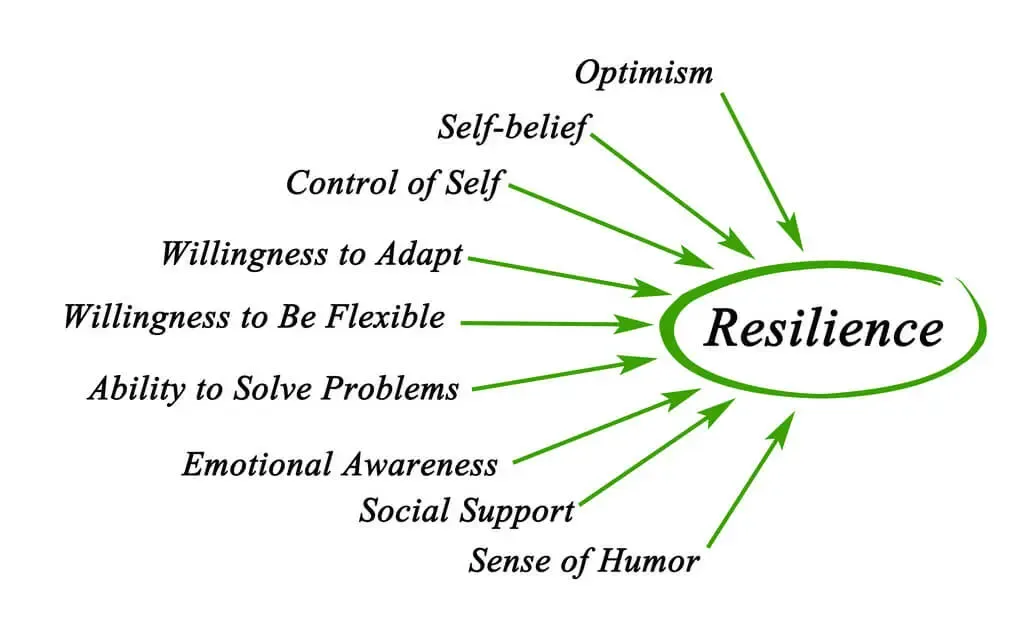Unlocking Growth: The Transformative Power of Embracing Pain
Experiencing pain is often seen as the pathway to growth, a significant realization I had on my own personal journey. This understanding emerged from recognizing the importance of transition points – those challenging experiences and moments of change that shape our lives.
Transition points can take on various forms: the loss of a loved one, the end of a relationship, the failure of a business venture, or a major health setback. While these moments can be incredibly painful, they also serve as catalysts for personal growth and the development of resilience.
Through adversity and what some people would label as negative events, we are pushed out of our comfort zones and forced to confront our own limitations. This process compels us to examine our values, beliefs, and priorities, ultimately allowing us to reassess our lives and make necessary changes. Our ability to adapt and grow in the face of pain is what propels us forward.
Embracing these transition points is crucial, as they offer profound opportunities for personal evolution. Building resilience, the inner strength to bounce back from setbacks and adversity, is a key component of this growth. Resilience enables us to persevere despite the pain, to discover our true capabilities, and to cultivate a deep sense of self-worth.
By embracing stressful events and the power of resilience, we not only navigate the challenges of life more effectively but also open ourselves up to new possibilities and opportunities for growth. Pain serves as the catalyst for transformation, propelling us to transcend our limitations and become the best versions of ourselves. Through pain, we evolve, and through evolution, we find growth.
The Power of Resilience: Unleash Your Inner Bounce!
Resilience is the remarkable ability to bounce back and remain flexible in thoughts, feelings, and behaviors when faced with life disruptions or extended periods of pressure. It involves the capacity to adapt and recover from adversity, ultimately emerging stronger, wiser, and more capable. Resilience allows individuals to navigate the ups and downs of life with grace and determination.
The concept of resilience is multifaceted and can manifest in various adaptive ways. It is influenced by a range of factors, including individual traits, environmental conditions, and learned experiences. Resilience is not just about resilience in the face of traumatic events but also about how individuals handle daily challenges and stressors.

Being resilient means having the inner strength to cope with setbacks and stressful events, while maintaining a sense of hope and optimism. It is about finding ways to overcome obstacles, embracing change, and learning from failures. Resilient individuals are better equipped to manage stress, maintain a positive outlook, and persevere when faced with adversity.
In today’s world, where life disruptions and pressure are an inevitable part of the human experience, resilience plays a vital role. It empowers individuals to navigate challenging circumstances, enabling them to bounce back and thrive.
By developing resilience, individuals can cultivate the emotional and mental fortitude needed to face both small and significant obstacles, ultimately leading to personal growth, fulfillment, and success.
The Importance of Resilience
Resilience is of utmost importance as it empowers individuals to navigate through life’s challenges with determination and strength. It allows them to tackle obstacles head-on, overcome them, and move forward. Without resilience, individuals could easily feel overwhelmed and succumb to the negative effects of adversity.

Foster Healthy Coping Mechanisms
One key aspect of resilience is its ability to foster healthy coping mechanisms. Rather than getting consumed by pain and hardship, resilient individuals find effective ways to process emotions and manage stress. They view challenges as opportunities for growth and personal development, allowing them to bounce back stronger.
Moreover, resilience serves as a catalyst for individuals to tap into their strengths and support networks. By harnessing their inner resources, resilient individuals are able to rebuild their lives after experiencing pain and hardship. They gain a deeper understanding of their own capabilities and develop a greater sense of self-confidence.
Support Networks
Support networks, consisting of friends, family, and mentors, provide crucial emotional and practical support during tough times. Resilient individuals understand the power of seeking help and are willing to lean on their support systems for guidance and encouragement.
In summary, resilience plays an integral role in helping individuals tackle challenges, avoid feeling overwhelmed, and develop healthy coping mechanisms. By tapping into their strengths and support networks, resilient individuals are able to rebuild and move forward after experiencing pain and hardship.
Examples of Resilience
Resilience can be found in various contexts, from public figures to everyday individuals facing health and personal challenges. Let’s explore some inspiring stories of resilience.
Randy Travis
Country music legend Randy Travis faced a life-altering health crisis when he suffered a stroke in 2013. Despite being unable to sing or speak for years, Travis worked tirelessly during his rehabilitation, eventually relearning how to perform. His determination and unwavering spirit showcased his resilience in the face of adversity.
J.K. Rowling
J.K. Rowling, renowned author of the Harry Potter series, dealt with numerous rejections before finding success. Additionally, she battled depression and financial struggles as a single mother. Yet Rowling persisted, believing in her writing talent and engaging her resilience to become one of the most beloved authors of all time.
Emily Blunt
Actress Emily Blunt faced criticism early in her career, being told she was “not pretty enough” or “not talented enough.” However, she refused to let negativity define her. Through perseverance and unwavering self-belief, Blunt overcame the odds, earning critical acclaim for her performances and becoming a leading actress in Hollywood.
Sterling K. Brown
Sterling K. Brown, the Emmy-winning actor, experienced multiple rejections before landing his breakthrough role. His resilience and perseverance led him to excel in hit series like “This Is Us,” proving that setbacks can be transformed into opportunities for growth and success.
Jennifer Hudson
Singer and actress Jennifer Hudson faced the tragic loss of her family members in a violent crime. Despite the heartbreak, she channeled her pain into her music and acting career, eventually winning an Academy Award and becoming a vocal advocate for victims’ rights.
Lionel Messi
Soccer superstar Lionel Messi overcame physical challenges in his early years, being diagnosed with growth hormone deficiency. Grit, resilience, and a growth mindset propelled him to become one of the greatest players in history.
Eminem
Rapper Eminem faced a tough upbringing and battled addiction. Through determination and resilience, he transformed his pain into powerful lyrics, becoming an influential artist and inspiring others with his story of triumph over adversity.
In addition to these public figures, countless everyday individuals exhibit resilience in the face of chronic illness, caregiving, and weight loss struggles. Their stories remind us that resilience knows no boundaries, and with perseverance, we can overcome any challenge that comes our way.
The Perfect Balance of Stress!
Allowing an optimal amount of stress is essential in fostering growth and resilience. While stress is often perceived as negative, it can actually serve as a catalyst for personal development. By facing and overcoming challenges, individuals can build their capacity to handle adversity, develop problem-solving skills, and cultivate resilience.

Making Mistakes
Shielding children from making mistakes may appear protective, but it hinders their ability to learn and develop resilience. Making mistakes is a natural part of life and provides valuable learning opportunities. When children are protected from failure or shielded from stress, they miss out on important lessons about perseverance, problem-solving, and resilience. By allowing children to experience and navigate stress in a supportive environment, they can develop the skills necessary to face future challenges with resilience and adaptability.
Strike a Balance
It is crucial to strike a balance. Too much stress can lead to trauma and hinder growth. It is important to create an environment where individuals are adequately supported and guided through challenging experiences. Providing both emotional support and practical tools empowers individuals to learn from stress and adapt in a healthy manner.
Your Reaction Determines Your Destiny – 90% of Life Is How You Respond to the 10% of What Happens to You!
The concept that life is 10% what happens to you and 90% how you react to it emphasizes the influence of our reactions and mindset on our outcomes and overall well-being. While we cannot always control what happens to us, we have the ability to choose how we respond to adversity.
The Mindset of Successful People
Successful people understand the importance of this mindset and respond to adversity in a different way. Instead of dwelling on the negative aspects of a situation, they focus on finding solutions and learning from the experience. They embrace a growth mindset, viewing setbacks as opportunities for personal growth and learning. For example, Oprah Winfrey overcame a difficult childhood and turned her struggles into a platform for success and compassion.
Resilience Plays a Crucial Role in Achieving Success
There are four common hardships that people often face: failure, rejection, loss, and change. Resilience plays a crucial role in overcoming these challenges. When faced with failure, resilient individuals see it as a stepping stone to success and learn valuable lessons from their mistakes. In the face of rejection, resilient people maintain a positive attitude and persevere, using it as motivation to prove themselves. When dealing with loss, resilient individuals allow themselves to grieve but also focus on finding meaning and moving forward. Lastly, resilient individuals embrace change and adapt to new circumstances, seeing it as an opportunity for personal growth.
Resilience is a combination of protective factors, such as social support, emotional intelligence, and problem-solving skills. It is not a fixed trait but can be developed and strengthened over time. The ability to bounce back from adversity is essential for overall well-being and success in life. By cultivating resilience, individuals are better equipped to navigate through life’s challenges and emerge stronger and more empowered.
The Take-Home Message
Resilience is the key to overcoming adversity and achieving success. It involves the ability to remain flexible and adaptable while facing life’s challenges. Resilient individuals view setbacks as opportunities for personal growth and learning, rather than dwelling on the negative aspects of a situation. They embrace a growth mindset and find solutions to problems instead of being consumed by them.
By developing resilience, individuals can protect themselves from the harmful effects of stress. Resilience allows people to bounce back from setbacks and come out stronger, both mentally and emotionally. It enables them to navigate difficult times with grace and maintain their overall well-being.
The capacity to adapt and remain flexible in the face of adversity is crucial in today’s ever-changing world. Those who possess resilience are more likely to overcome obstacles, achieve their goals, and lead a fulfilling life. It is a valuable trait that empowers individuals to persevere in the face of failure, rejection, loss, and change.
In conclusion, resilience is a powerful tool that builds strength and character. It is essential for personal growth and success in overcoming life’s challenges. By embracing resilience, individuals can navigate adversity with greater ease and protect themselves from the harmful effects of stress.





